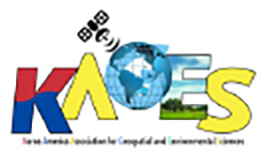Abstract
This special issue contains six papers on the development of students’ knowledge, skills, and practice of geospatial thinking in a variety of educational contexts. Each of the papers addresses an aspect of the research gap that deserves timely attention in the field, focusing on curriculum design, pedagogical approaches, exemplary resources or tools, and strategies to move forward for the promotion of geospatial teaching and learning. We encourage continued research efforts to accumulate knowledge about curriculum, instruction, and assessment, as well as teachers’ professional development that can help students become 21st-century citizens equipped with geospatial literacy. Further research is recommended on the theories that can help explain and guide the development of students’ geospatial knowledge and skills in both formal and informal education, and effective ways to incorporate geospatial thinking into teacher preparation programs.
Recommended Citation
Jo, Injeong and Hong, Jung Eun
(2018)
"Geography Education, Spatial Thinking, and Geospatial Technologies: Introduction to the Special Issue,"
International Journal of Geospatial and Environmental Research: Vol. 5:
No.
3, Article 1.
Available at:
https://dc.uwm.edu/ijger/vol5/iss3/1

